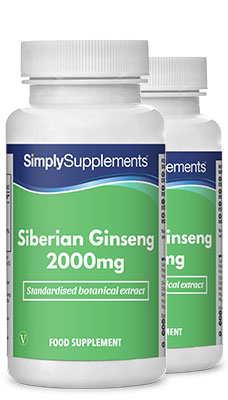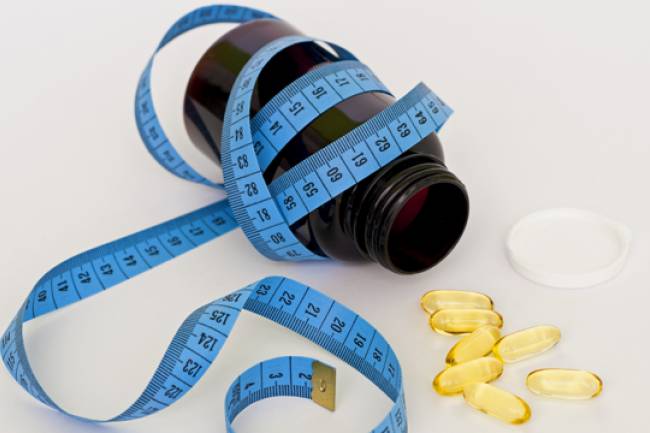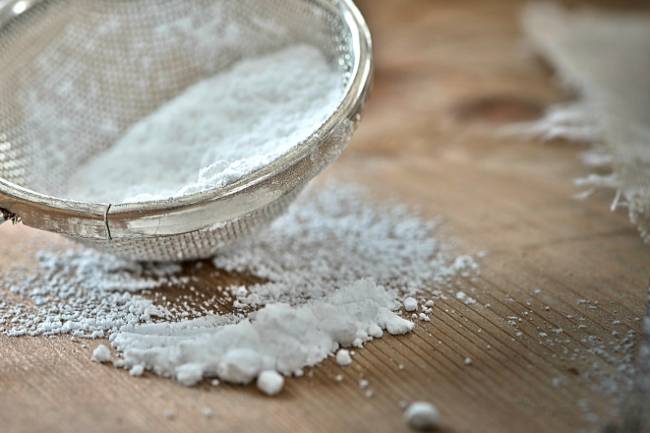Best Supplements for Tiredness

Do you struggle to drag yourself out of bed in the morning? Do you feel fuzzy-headed during the day, or find that tiredness affects your work? If so, then this guide is for you.
You might be relieved to hear that there are a surprising number of natural ingredients that are believed to support healthy energy levels.
Even better, unlike many over-the-counter solutions, some of the best supplements for tiredness have proven themselves both safe and effective over decades of use.
So where do you start when it comes to the best supplements for tiredness?
Rhodiola
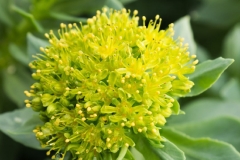 Rhodiola rosea (often known simply as “rhodiola”) is a short, flowering plant that grows wild in Arctic regions of the world. It has been used as a herbal remedy for generations, most commonly to help control cases of mild anxiety, and the loss of sleep that often accompanies it. Alongside this, however, numerous studies have also found that a suitable dose of rhodiola can help to reduce feelings of mental fatigue.
Rhodiola rosea (often known simply as “rhodiola”) is a short, flowering plant that grows wild in Arctic regions of the world. It has been used as a herbal remedy for generations, most commonly to help control cases of mild anxiety, and the loss of sleep that often accompanies it. Alongside this, however, numerous studies have also found that a suitable dose of rhodiola can help to reduce feelings of mental fatigue.
A great example involved 100 volunteers who were suffering from constant tiredness. Each person was prescribed 400 mg of rhodiola per day, while undergoing regular testing to measure both their mental and physical levels of fatigue.
After just a week of treatment improvements started to show, with these increasing over the eight week research period. The scientists running the investigation concluded that rhodiola was “an effective treatment in subjects suffering from prolonged or chronic fatigue”.
This is far from the only positive result. Another group of researchers opted to carry out what is known as a “meta-analysis”. In such an investigation, the results of numerous previous studies are combined and collated. Thanks to the large volume of results used, such studies are known to produce extremely accurate findings. As a result, a “meta-analysis” is often described as the “gold standard” of scientific investigation. This particular meta-analysis investigated a wide range of supplements and herbal remedies claimed to reduce tiredness, in order to assess just how convincing the evidence was.
When it came to rhodiola their findings demonstrated “strong scientific evidence” that it can lead to “improved attention, cognitive function and mental performance”. Even better, there's no need to head to the Arctic any more to brew your own herbs. Instead, these days carefully purified rhodiola supplements are available from specialist suppliers nationwide.
Acetyl L-Carnitine
Acetyl l-carnitine is a supplement most commonly associated with the fitness industry. Studies have shown, for example, that the correct dosage can support improved physical performance. It is also believed by many fitness enthusiasts that l-carnitine can speed up weight loss when used alongside a suitable exercise program and a calorie-controlled diet.
Rather more interestingly, however, some studies have also found evidence that l-carnitine may help to reduce fatigue and improve endurance. The effect seems particularly strong in older individuals, who may be naturally deficient due to reduced synthesis in the body.
One study divided 66 older individuals into two equally-sized groups. One half of the volunteers received 2 grams of l-carnitine per day, while the other half received a placebo treatment. Numerous studies were carried out, covering everything from exercise performance to blood work. In line with previous research, the l-carnitine group saw improvements in walking speed, cholesterol and body fat levels. Of greater relevance here, however, was that “significant differences” were noted for both the levels of mental and physical fatigue.
Shop for acetyl l-carnitine here
Ginseng
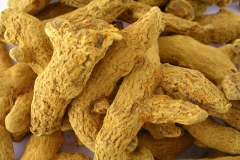 Ginseng is the name given to supplements that are derived from the root of the Panax plant. Ginseng has been used as a traditional herbal remedy for years, and is considered to be one of the most popular supplements worldwide. Part of the reason for this popularity is the reputed cognitive benefits.
Ginseng is the name given to supplements that are derived from the root of the Panax plant. Ginseng has been used as a traditional herbal remedy for years, and is considered to be one of the most popular supplements worldwide. Part of the reason for this popularity is the reputed cognitive benefits.
In order to verify the effect of ginseng on tiredness, a fascinating study provided either Siberian ginseng or a placebo to volunteers for a period of 12 weeks. Both before and after the study, each participant completed questionnaires designed to assess their psychological wellbeing and quality of sleep.
Reporting their conclusions, the scientists running the study found that the group taking ginseng “improved significantly” in a range of different metrics including alertness, relaxation and appetite. In contrast, no such improvements were seen in the placebo group.
Our own Siberian Ginseng supplement is formulated specifically to support a reduction in tiredness and fatigue, together with encouraging normal mental performance.
Vitamin D
Historically, vitamin D has most strongly been associated with maintaining a strong skeleton. The primary role of vitamin D is assisting the absorption of calcium from your diet; one of the most important minerals for bone health.
In recent decades, however, experts have begun to understand that vitamin D has a far broader range of impacts on the body than initially thought. Increasingly, for example, the scientific community is uncovering the links between vitamin D intake and Seasonal Affective Disorder (SAD). Seasonal Affective Disorder is a well-recognised condition, with symptoms that can include tiredness and even depression. SAD is most commonly associated with the winter months, when sunlight (and hence vitamin D status) tends to be at its lowest.
All the same, the intelligent use of sunscreen, and the huge amount of time that many of us spend indoors - even in summer months - means that vitamin D deficiencies are theoretically possible at any time of year. If you're someone who works indoors during the week, and doesn't get out in the sunshine very regularly, then it is possible that a vitamin D deficiency may be contributing to your feelings of tiredness. If so, a low-cost supplement can be a great way to give you a natural boost.
Iron
Wide-ranging studies have demonstrated that low iron levels in the body are associated with a greater prevalence of “constant tiredness”. This relationship is most likely down to iron's crucial role in the creation of red blood cells. Red blood cells transport oxygen and nutrients around the body, ensuring that your cells receive all the nutrients they need. As a result, low iron levels in the body can result in your cells struggling to obtain the nutrients they require. It therefore seems little wonder that an iron deficiency can lead to tiredness and fatigue.
Further research has also demonstrated that increasing iron intake - either through supplementation or an iron-rich diet - can benefit such situations. One such analysis concluded that supplementation “improved mental health and decreased fatigue”.
While in theory anyone can suffer from an iron deficiency, it is most likely among vegetarians and vegans (as meat can be a rich source of iron) and in women reaching the menopause. If in doubt, consider trying an iron supplement for a few months to see if you start feeling better.
Vitamin B Complex
While many different vitamin and mineral deficiencies can lead to exhaustion, the B vitamins are probably some of the best-known. EFSA, the regulatory body for supplements sold in Europe, has authorised the claims that vitamin B2, B6 and B12 all contribute to normal energy-yielding metabolism.
As we've already seen, healthy red blood cells are crucial for transporting the nutrients you need around the body. It's therefore interesting to note that these vitamins also variously support iron absorption, red blood cell formation and can therefore contribute to the reduction of tiredness and fatigue. Taking a vitamin B complex supplement is a great way to tick off all of these vitamins in one handy tablet.
Caffeine
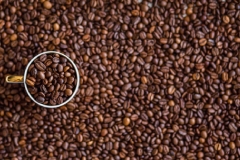 It should hardly be surprising that caffeine features on our list of the best supplements for tiredness. After all, we've all experienced how a strong coffee can kick start us in the morning. This isn't just your imagination running wild; numerous studies have demonstrated surprisingly effective results. For example, athletes asked to cycle until exhaustion managed to improve their results by 14% just by consuming 5 mg of caffeine per kilogram of bodyweight.
It should hardly be surprising that caffeine features on our list of the best supplements for tiredness. After all, we've all experienced how a strong coffee can kick start us in the morning. This isn't just your imagination running wild; numerous studies have demonstrated surprisingly effective results. For example, athletes asked to cycle until exhaustion managed to improve their results by 14% just by consuming 5 mg of caffeine per kilogram of bodyweight.
Equally, just 3mg of caffeine per kilo of bodyweight has been shown to improve steering accuracy in long-distance driving simulations. Most interestingly of all, it has been claimed that the effects of caffeine “are often clearest when alertness is reduced”. In other words, the more tired you feel, the larger the effects are likely to be for you.
Important Warning
Before we conclude this guide, it is important to point out that tiredness and fatigue can be an indication of an underlying medical condition. Consequently, while there is good scientific evidence that the supplements featured here may help in many cases, it is important not to focus purely on these at the expense of professional medical assistance.
If you are experiencing lower energy levels on a regular basis, and you're unsure of the reason, we would always recommend speaking to your doctor to help identify any undiagnosed health issues before investing in supplements.
Conclusion
As we have seen, there are a host of supplements that can help in cases of fatigue. Of course, not all supplements will work for everyone, and the impact you experience is likely to vary both by the dosage and the ingredients used.
Assuming you have ruled out any underlying medical conditions, why not try one or two of these supplements today and see which are most effective for you?
Sources:
https://onlinelibrary.wiley.com/doi/full/10.1016/j.jmwh.2008.04.014
https://www.ajgponline.org/article/S1064-7481(12)60890-2/abstract
https://link.springer.com/article/10.1023/A:1008978114650
https://www.tandfonline.com/doi/abs/10.1080/07315724.2001.10719054
https://www.cambridge.org/core/journals/psychological-medicine/article/randomized-controlled-trial-of-siberian-ginseng-for-chronic-fatigue/B9941CDB55F4C53FF5DB1D48B5C350A7
https://www.sciencedirect.com/science/article/pii/S0011393X0580075X
https://www.karger.com/Article/Abstract/457918
http://www.ingentaconnect.com/content/ben/ccp/2009/00000004/00000003/art00004
https://onlinelibrary.wiley.com/doi/abs/10.1002/hup.327
https://link.springer.com/article/10.1007/s00421-016-3483-y
https://academic.oup.com/ajcn/article/86/6/1738/4649810
https://www.sciencedirect.com/science/article/pii/S0167494307001069

 Nicole
Nicole 



